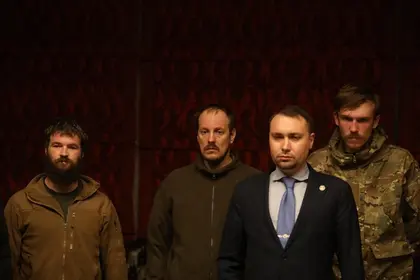Ukraine’s head of military intelligence, Kyrylo Budanov, thinks the offensive from Belarus is a Russian disinformation campaign, but long-term risks remain.
Ongoing military exercises in Belarus and weapon supplies from Russia are raising alarms among some analysts, yet there remains no consensus on whether a new invasion of Ukraine from the north and northwest is in the works.
JOIN US ON TELEGRAM
Follow our coverage of the war on the @Kyivpost_official.
On Dec. 25, Kyrylo Budanov, the Chief of the Main Intelligence Directorate of the Ministry of Defense, said in an interview with the New York Times that Russia’s activity in Belarus forces Ukraine to keep a significant number of troops in the north, tied up and unable to fight Russia in the south and east.
- Check the most recent war in ukraine update in the Kyiv Post's daily news stories released today.
- Receive the latest Ukraine news bulletins for today.
He also highlighted how "carousels" take soldiers by train toward the Ukrainian border and then back, giving the impression of larger troop movements.
"All these are all elements of disinformation campaigns," Budanov said.
"Long-term risks remain," he admitted. However, no intelligence now points to an immediate threat.
According to Budanov, Russian troops are not lined up in assault formation. The mobilized are being trained in Belarus before being sent to the Donbas, but the training ranges lack serviceable equipment for the attack.
On Dec. 21, the Institute of Study of the War analysts noted the indicators are now mixed. Some experts confirmed that evidence of a Russian force build-up in Belarus makes more sense in the context of preparations for a new offensive than the current exercises and maneuvers. At the same time, there is no evidence that Moscow is actively preparing a strike force in Belarus.

1,100 North Korean Casualties in Russia-Ukraine War: Seoul
Trainloads of Russian troops and equipment moving into Belarus have spiked since October, according to President Aleksandr Lukashenko, because Minsk and Moscow are forming a joint combat force in the west of the country, with the collective security mission of deterring NATO or a Ukrainian invasion.
You can also highlight the text and press Ctrl + Enter






